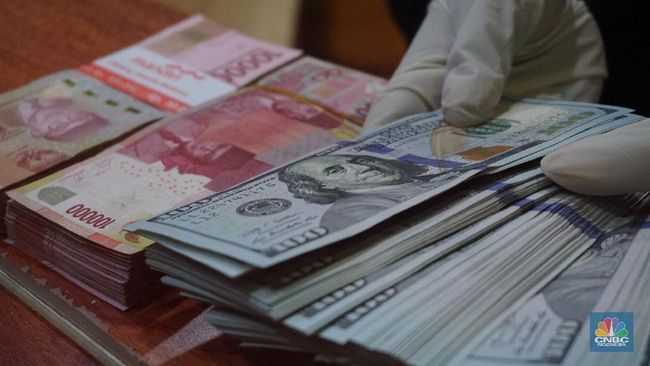Jakarta, CNBC Indonesia – Indonesia’s Balance of Payments (NPI) recorded a surplus in the third quarter of 2020, although not as big as the previous quarter’s surplus. But what came as a surprise was that the current account managed a surplus after nine years of deficit.
“The balance of payments recorded a surplus of US $ 2.1 billion in the third quarter of 2020, continuing the achievement of a surplus of US $ 9.2 billion in the previous quarter. The continuing BOP surplus was supported by the current account surplus as well as the capital and financial account,” said a written statement. Bank Indonesia (BI), Friday (20/11/2020).
In the third quarter of 2020, the current account (current account) recorded a surplus of US $ 1 billion or 0.4% of the Gross Domestic Product (GDP). The current account surplus is bolstered by a surplus in the goods balance in line with the improvement in export performance amidst restrained import activities in line with weak domestic demand.
Meanwhile, the service account deficit increased due to an increase in the deficit in travel services due to low foreign tourist visits, as well as an increase in the deficit of other services such as telecommunications, computer and information services in line with the increase in imports of services for the needs of supporting community activities which were mostly carried out online (online) during the Covid pandemic19. Meanwhile, the deficit in the primary income account increased, mainly driven by increased returns on direct investment.
Then the capital and financial transactions recorded a surplus of US $ 1 billion, also 0.4% of GDP. This surplus was bolstered by inflows of direct investment and other net investment, amid adjustments to portfolio investment in line with increasing uncertainty on global financial markets.
The inflows of direct investment were maintained in line with the improving domestic economy. Other investment transactions experienced a surplus driven by the withdrawal of government loans in support of financing the handling of the Covid-19 pandemic and the National Economic Recovery (PEN) program as well as the withdrawal of private sector deposits abroad, in line with the need for foreign loan repayments. Meanwhile, portfolio investment recorded net outflows of USD 1.9 billion, after recording a net inflows of USD 9.8 billion in the preceding quarter.
“Going forward, Bank Indonesia will continue to pay close attention to the dynamics of the global economy that could affect the prospects for the balance of payments and continue to strengthen the policy mix to maintain economic stability, as well as strengthen policy coordination with the Government and related authorities in order to strengthen external sector resilience,” said a written statement from BI.
(aji / aji)
– .

